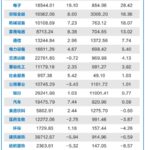The Greater Bay Area Medical Access Policy represents systematic, comprehensive, and coordinated reform and innovation.
Since its implementation, the Greater Bay Area Medical Access Policy has been continuously advancing and expanding its application scope.
On September 29, supported by the Greater Bay Area Medical Access Policy, The First Affiliated Hospital of Jinan University successfully performed the first Yttrium-90 (Y90) glass microsphere procedure in the Guangdong-Hong Kong-Macao Greater Bay Area. The patient had previously sought medical attention for dizziness, headaches, and elevated blood pressure, during which examination revealed primary malignant liver tumors.
According to reports, a multidisciplinary team including nuclear medicine, oncology, interventional vascular surgery, and liver tumor center specialists conducted collaborative diagnosis and assessment. Given the high probability of recurrence after traditional surgical resection, and considering the patient’s young age and desire for better long-term outcomes, the team recommended Y90 microsphere therapy. This precise minimally invasive treatment approach creates a “bridge from inoperable to potentially curative” transformation, expected to shrink tumors, control cancerous thrombi, and reduce recurrence rates. In the future, the patient may have opportunities for surgical resection or liver transplantation to achieve cure and extend survival.
Y90 Debut
China currently bears the heaviest global burden of liver cancer, accounting for 42.4% of worldwide cases. Over 367,700 new liver cancer cases are diagnosed annually in China. Liver cancer is often called the “silent killer” due to its hidden onset, rapid progression, and high postoperative recurrence and metastasis rates. Clinical data shows a severe situation in liver cancer prevention and treatment in China, with 70%-80% of patients being ineligible for direct surgical resection at initial diagnosis. The five-year overall survival rate for domestic liver cancer patients is only 14.1%. Providing more precise and effective treatment options for such patients represents an urgent clinical challenge requiring breakthrough solutions.
The Y90 glass microspheres used in this procedure represent the first “radioactive” related tumor treatment device approved in the Greater Bay Area, and also the first Y90 microsphere globally approved by the FDA for primary liver cancer treatment. They combine the dual advantages of traditional internal radiation therapy’s “targeted killing” and vascular interventional technology’s “minimally invasive safety.” Additionally, Y90 glass microsphere treatment is not a “one-size-fits-all” standardized approach but can tailor microsphere dosage according to individual patient conditions, achieving personalized precision treatment with “one dose per person.”
A medical imaging department director and nuclear medicine department head commented: “The beta rays released by Y90 have very short penetration distance in liver tissue, averaging only 2.5 millimeters. Combined with the personalized ‘one dose per person’ design, this significantly reduces damage to normal liver tissue and adjacent organs, effectively avoiding traditional radiotherapy side effects and creating favorable conditions for subsequent patient treatment.”
Minimally invasive approach was a key feature of this procedure. The team utilized minimally invasive interventional equipment DSA for efficient operation. An interventional vascular surgery department director explained: “Through a single minimally invasive interventional procedure, millions of Y90 glass microspheres containing high radioactive activity are injected into the liver tumor’s nourishing blood vessels and implanted within the tumor, allowing Y90’s beta rays to continuously irradiate and destroy tumor tissue from close range inside the liver. This method causes minimal trauma, requires no anesthesia for patients, and effectively reduces treatment interference with patients’ bodies.”
Regarding patient concerns about radiation safety and long-term effects, a liver tumor center professor provided professional explanation: “Y90 has a short half-life, releasing most radioactive material for therapeutic effect within the first two weeks after tumor implantation, completely ceasing radiation after 28 days. Moreover, the glass microspheres can remain in the body long-term, eventually becoming enveloped by new liver tissue without causing toxic side effects or rejection issues, allowing patients to return to normal life soon after surgery.”
The hospital president introduced that as the first tertiary hospital in Southern China to apply Yttrium-90 treatment for malignant liver tumors, the hospital has treated nearly 400 patients since 2022, with procedure numbers ranking among the nation’s highest. The hospital established a Y90 Center in 2024 by integrating multidisciplinary advantages. By pioneering the introduction of Y90 glass microspheres, they aim to continuously empower liver tumor diagnosis and treatment through innovative medical devices, providing cutting-edge treatment solutions aligned with international standards for liver cancer patients throughout the Greater Bay Area and nationwide.
Medical Access Policy Benefits Public and Promotes Industry Development
As a designated medical institution under the Greater Bay Area Medical Access Policy, the hospital has obtained 15 approvals covering six departments including cardiovascular medicine, sports medicine, neurology, interventional vascular surgery, rheumatology immunology, and gastroenterology



